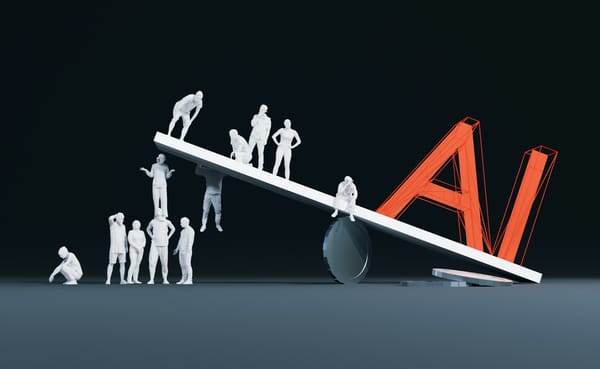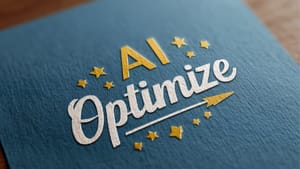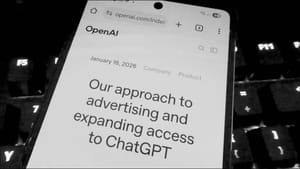One theme I keep circling back to in my writing and discussions is simple but urgent: AI must be about people, not just machines.
That idea has shaped so many of my conversations during this year – from the role of managers in an AI-driven workplace to the Vatican’s view on ethics, which Silvia, Shel and I explored in an FIR Interview with Monsignor Paul Tighe in July.
Each time, I’m struck by the same question: how do we ensure technology serves humanity, rather than the other way around?
A couple of weeks ago, I joined an online dialogue organised by Chris Heuer that brought together 50 people from across the world. The focus was on defining what a human-centred organisation should look like in the age of AI. I wrote about it on LinkedIn.
The energy in that session was remarkable. People spoke passionately about empathy, respect, and fairness. About making sure AI productivity gains are reinvested in people rather than absorbed into quarterly results. And about resisting the temptation to treat humans as a disposable line item once technology promises cheaper alternatives.
Not Just Abstract Questions
What struck me most was how these themes echoed the personal changes I’ve been making myself – stepping away from hustle culture, re-aligning work and life, and creating a new place to think more intentionally. Just as individuals need to pause and choose a different path, so too do organisations.
Chris has now gathered those conversations into the beginnings of something bigger: the idea of the H-Corp. At its heart, it’s a challenge to organisations to rethink what they owe humanity in an AI-driven world. Do they pursue efficiency at all costs, or do they choose long-term flourishing? Do they replace people wherever possible, or enable them to thrive alongside the machines and algorithms?
These aren’t abstract questions. We’ve already seen companies use AI adoption as a pretext for cutting jobs, only to discover that customers with less income also buy fewer products. Short-term efficiency has long-term consequences – for people, for markets, and for society.
That’s why the idea of H-Corp resonates with me. It’s not a finished framework – the development work will get underway when Chris shares the initial framework, planned for November – but it feels like a naming moment, just as “social media” once crystallised a new way of thinking about communication. H-Corp could become shorthand for a movement that puts people at the centre of AI adoption.
Why Communicators Matter
We’re the ones who can help organisations tell this story – framing AI not as a cost-cutting weapon, but as a tool to augment human potential. If we don’t help shape that narrative, someone else will, and it may not be one that serves people well.
This is the conversation Shel and I dive into in the September monthly episode 482 of our For Immediate Release podcast. We explore why the H-Corp idea matters, the tensions it raises, and how communicators can play their part in making it real.
You can listen here; our H-Corp discussion starts at about the 13-minute mark:

For me, this isn’t just theory. It’s a continuation of the journey I’m on myself: to live and work more intentionally, and to choose flourishing over efficiency. The hope is that organisations can make that same choice too.
That’s the real opportunity. If we get this right, AI doesn’t have to be a story of replacement or fear. It can be a story of dignity, space, and tools that help people thrive.
And when people thrive, their organisations do too – not only in financial terms, but also in resilience, creativity, and long-term sustainability.




















